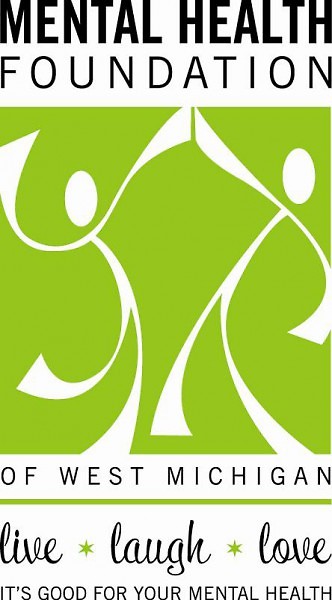Are you aware that suicide is the second leading cause of death among citizens age 15-24 in Kent County? I was hesitant about beginning this article with such sad information because I prefer to be positive and share information which is uplifting. However, the death rate of young people by suicide is a statistical reality here according to The Healthy Kent Suicide Coalition.
Fortunately, I have good news to share as well. There is a local organization, The Mental Health Foundation of West Michigan, which has developed a curriculum for middle and high school aged students. The curriculum focuses a great deal of attention on clinical depression and suicide prevention. The curriculum is not strictly limited to addressing the problem of teen depression and suicide, arming students with the information they may need to recognize an illness and save or improve their life, or the life of someone they care about, but it is a critical portion within the Live Laugh Love Education Program’s overall goal of educating young people about mental health conditions. If you are interested in learning common symptoms of clinical depression, a fairly thorough list, along with other critical information, can be found at WebMD’s Depression Health Center. This is basic health information which everyone should possess.
Teaching students about depression and other mental health conditions does not stop with symptoms and recognizing the possibility of an illness. Students are also taught how to be supportive and what to do in a situation wherein they or a friend might be symptomatic and in need of medical attention. One tangible example of this includes giving students a “Resource Card” which provides them with contact information for various resources within the community, including Network 180 (formerly known as “Kent County Community Mental Health and Substance Abuse Network”). Students are also given a national suicide hotline number which is routed locally based on the area code from which the call originates. That number is 1-800-273-TALK (8255). This vital lifeline number is repeated numerous times during class sessions and is included on the “Resource Card”, but students are also given bookmarks which list the telephone number along with common symptoms of depression and some other reference/reminder information.
The goal is to arm students with indispensable information they may need today, but also may need at some point in the future. The Mental Health Foundation of West Michigan is planting seeds of hope with today’s middle and high school students and the organization firmly believes that education is the best way to address the problem of mental health conditions being left untreated within this most vulnerable student population. In addition to being the second leading cause of death among people age 15-24 in Kent County, suicide is the second leading cause of death among college students nationally. Sending your son or daughter off to college without any knowledge of depression symptoms, and how to effectively seek help if symptoms are recognized, is analogous to sending your child off to college with the belief that drinking and driving is safe, fun and something you condone. The problem of suicide among young people is much larger than most people realize because there is still a taboo surrounding death by suicide (and matters related to brain illness in general) and many families choose to remain silent. In many cases, families do not even tell their closest friends what their loved one’s actual cause of death was.
Anyone who pays attention to national news already knows bullying is often a factor involved in death by suicide among young people and incidents of “bullycide” have been well documented throughout the United States (please note that in the YouTube video link, it indicates Michigan does NOT have anti-bullying legislation. At the time this video was produced, this information was accurate, but Michigan passed “Matt’s Safe School Law” on December 6, 2011). It is because there is sometimes a relationship between bullying and suicide that The Mental Health Foundation has begun a program called, be nice. in local schools as an adjunct to the Live Laugh Love Education Program. be nice. is a program which allows a school’s student body to design their own bullying awareness week which they tailor to their school based on what they see happening around them and addressing bullying concerns from a student based perspective.
This method of building an anti-bullying program allows the students to take ownership of their own be nice. campaign and has proven to be popular with students within schools that have begun campaigns. The reason the name be nice. was chosen is primarily because students are often told what not to do by their parents, teachers and other authoritative figures in their lives (“don’t bully people”, “don’t do drugs”, “don’t drink and drive”, etc.). be nice. is a simple and positive message which the students have proven to be able to build upon to develop some very creative and effective techniques in reducing bullying within their schools. Because be nice. campaigns are designed by students, they tend to be embraced quite well compared to the traditional teaching technique of having adults administrate what they believe is best.
Whether it is cyber-bullying, physical or emotional abuse within the school, or outside of school, students are much more in tune to what the primary problems are at their school. It is the bullying they have experienced and witnessed which feeds their creativity and is a strong incentive to organize around a school wide student supported program of greater peace and understanding among the diversity which exists within virtually every school. The Mental Health Foundation’s be nice. t-shirts have been very popular and are easily identifiable with their bold green “be nice” lettering, followed by a pink dot. The be nice. initiative is growing and several community businesses have expressed an interest in actively participating in a be nice. campaign of their own.
Disclosure: Joel Penny is an Education Specialist within The Mental Health Foundation of West Michigan. They are a 501(c)3 non-profit organization. Thank you for your interest in this article and any financial support you may choose to provide. If you have an interest in other topics related to mental health which you would like to see addressed here on The Rapidian, please let me know by commenting on this article.
The Rapidian, a program of the 501(c)3 nonprofit Community Media Center, relies on the community’s support to help cover the cost of training reporters and publishing content.
We need your help.
If each of our readers and content creators who values this community platform help support its creation and maintenance, The Rapidian can continue to educate and facilitate a conversation around issues for years to come.
Please support The Rapidian and make a contribution today.
Related Articles
Comments, like all content, are held to The Rapidian standards of civility and open identity as outlined in our Terms of Use and Values Statement. We reserve the right to remove any content that does not hold to these standards.


